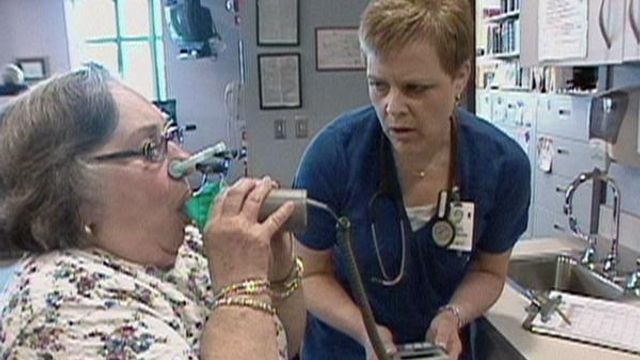Low-dose oral steroids effective for chronic obstructive pulmonary disease
Chronic obstructive pulmonary disease (COPD) is the fourth leading cause of death nationwide. The disease can destroy normal lung tissue and make breathing difficult.
Posted — UpdatedChronic obstructive pulmonary disease (COPD) is the fourth leading cause of death nationwide. The disease can destroy normal lung tissue and make breathing difficult.
Steroids are a key treatment for COPD, but how the medication is taken is important.
Francis Welch, who smoked most of his adult life, lives with COPD.
"I have to think about breathing 60 minutes of every hour. It's a heck of a nuisance,” Welch said.
For many COPD patients, constantly monitoring their breathing along with exercise can help them stay out of the hospital. However, the symptoms can worsen leading to many hospital stays where they are treated with medications like steroids.
"What we're looking to do is find the lowest effective dose of steroids so that we can minimize the risk of steroid-related side effects,” said Dr. Peter Lindenauer of Baystate Medical Center in Springfield, Mass. Lindenauer led a study of COPD patients.
Researchers looked at COPD patients at more than 400 hospitals who were treated with steroids in the first two days of their hospitalization. They compared patients who received steroids orally to those who received 10 times that dose intravenously. The oral steroid group had similar, if not better, outcomes than the intravenous group.
"Yet, they were spared the risks associated with high dose steroid exposure,” Lindenauer said. “They tended to spend on average one day less in the hospital and incurred costs that were approximately $500 less per case."
The study is published in the Journal of the American Medical Association.
Welch quit smoking 12 years ago and convinced his son to quit. “He saw me walking around with a can of liquid oxygen that got his attention,” he said.
Researchers suggest patients start a conversation with their hospital physician on whether low-dose oral therapy would be effective in their particular case.
Copyright 2024 JAMA. All rights reserved.





